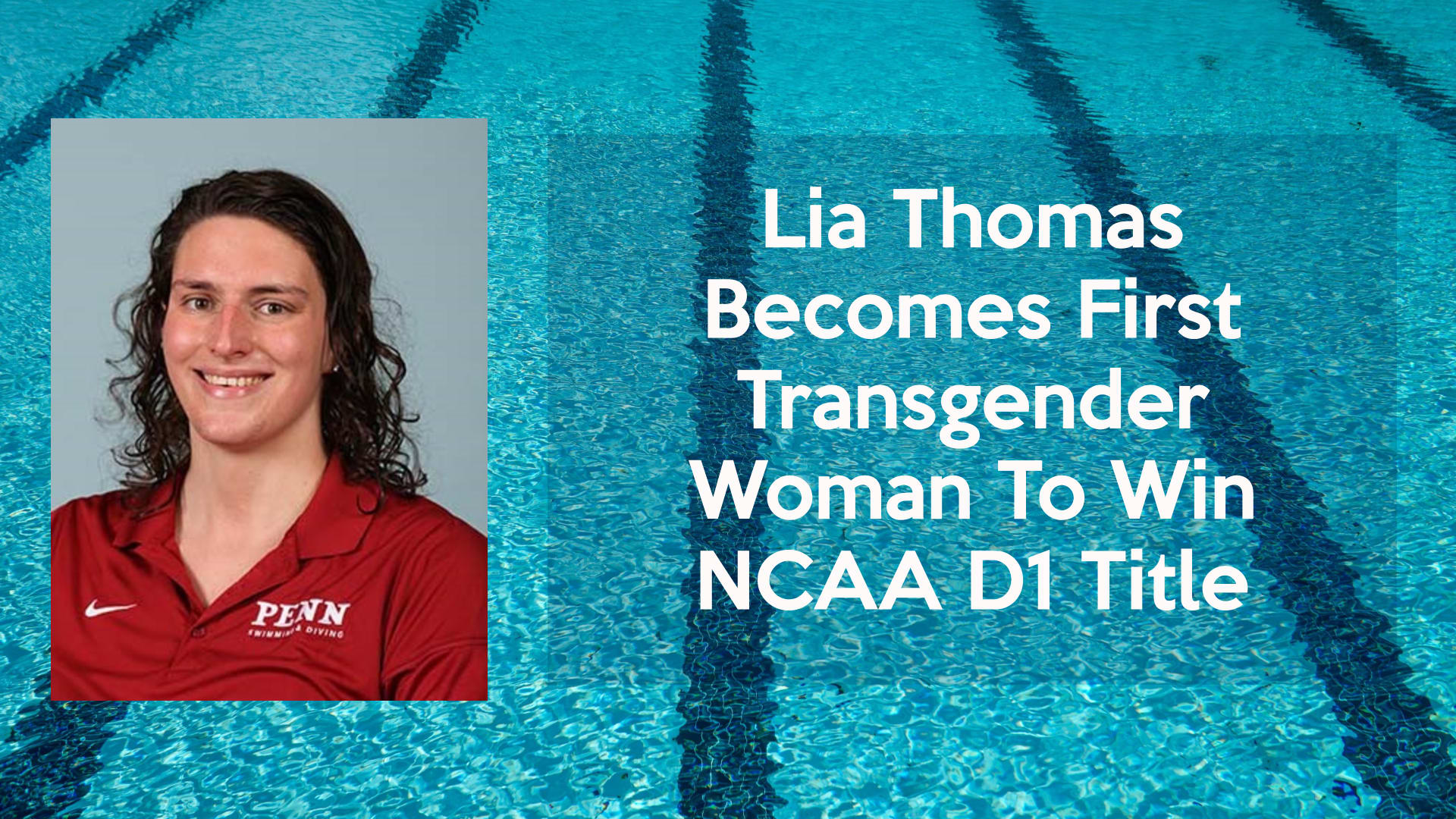With a time of 4:33:24, University of Pennsylvania swimmer, Lia Thomas, won her first NCAA championship, finishing first in the women’s 500-yard freestyle event. Thomas became the first transgender athlete to win an NCAA Division I title in colligate history.
Thomas entered the competition as the top seed and finished 1.75 seconds ahead of second-place Emma Weyant, from the University of Virginia. Thomas’ time was a season best and a little more than 9 seconds off from swim legend, Katie Ledecky’s 4:24.06 record.
“I didn’t have a whole lot of expectation for this meet,” said Thomas. “I was just happy to be here and race and compete the best I could.”
With success, however, comes criticism. Thomas’ swim career had previously risen the question among some about whether trans women should even be allowed to compete in women’s sports, but her win further challenges that base.
Thomas, had become the subject of international intrigue and debate after setting multiple records throughout her 2021-2022 college swim season. Her picture has been prominently displayed on right-wing sites and others critical of society’s changing views on gender. Save Women’s Sports, a group that opposes transgender athletes competing in women’s competition, even staged protests outside Georgia Tech’s swimming facility where Thomas’ win took place.
USA Swimming’s policy states that trans athletes must undergo three years of hormone replacement therapy before being allowed to compete. Thomas is six months short of that regulation but the NCAA decided to not adopt USA Swimming’s rules and allowed Thomas to compete in last week’s meet.
“The very simple answer is that I’m not a man,” she told a magazine. “I’m a woman, so I belong on the women’s team. Trans people deserve that same respect every other athlete gets.”
Reka Gyorgy, a 2016 Olympian for Hungary and current swimmer for Virginia Tech, wrote a letter to the NCAA, objecting to Thomas’s participation.
“This is my last college meet ever and I feel frustrated. It feels like that final spot was taken away from me because of the NCAA’s decision … I know you could say I had the opportunity to swim faster and make the top 16, but this situation makes it a bit different and I can’t help but be angry or sad. It hurts me, my team and other women in the pool,” she wrote.
While Gyorgy and other swimmers have been harsh of Thomas, other athletes have shown support. University of Texas’ Erica Sullivan, who placed third behind Thomas in the 500m freestyle, wrote an essay for Newsweek, which she argued women’s sports has other issues that are more important to address.
“As a woman in sports, I can tell you that I know what the real threats to women’s sports are: sexual abuse and harassment, unequal pay and resources and a lack of women in leadership. Transgender girls and women are nowhere on this list,” Sullivan wrote.
“Any hate is unnecessary,” University of Virginia junior Lexi Cuomo agreed. “We need to look at it as we’re all competitors right now. We’re focused on ourselves and our team. Our first and foremost goal is to win a national title.”
Thomas combats the negativity with no concern saying “I don’t look into the negativity and the hate,” continuing on by saying. “I am here to swim.”
She describes her motivation as “I just want to show trans kids and younger trans athletes that they’re not alone,” she told a magazine. “They don’t have to choose between who they are and the sport they love.”
